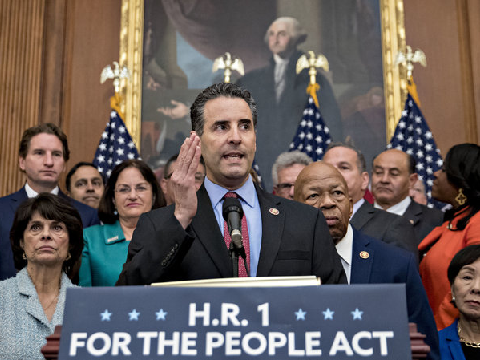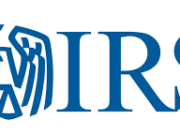Dear Representative:
The Institute for Free Speech[1] writes in strong opposition to H.R. 1, the “For the People Act.” More appropriately known as the “For the Politicians Act,” this radical bill would, in fact, greatly harm the ability of the people to freely speak, publish, and organize into groups to advocate for better government.[2]
In particular, H.R. 1 would impose onerous and unworkable standards on the ability of Americans and groups of Americans to discuss the policy issues of the day with elected officials and speak to the public. Other sections of the bill would violate the privacy of advocacy groups and their supporters, stringently regulate political speech on the Internet, and compel speakers to include lengthy government-mandated messages identifying some of their supporters by name in their communications.
If signed into law, all of these provisions would be interpreted and enforced by a newly partisan Federal Election Commission. Under H.R. 1, the Commission would be radically transformed from its historic and deliberately bipartisan structure to one under partisan control of the president. The likely impact would be to shrink public confidence in the impartial enforcement of campaign finance laws, weaponize these regulations for partisan gain, and silence much political speech through new rules on groups that speak about public affairs.
H.R. 1 would also coerce Americans into funding the campaigns of candidates with which they may disagree in a system that research has proven hasn’t worked elsewhere.[3] As a matter of first principles, it is morally wrong that, if a donor contributes $1 to any candidate’s campaign, it forces those opposed to that candidate to contribute $6 or even $9 in public tax money to support that candidate and his or her dissemination of ideas those taxpayers oppose. Beyond these first principles, this program will incentivize – and subsidize – candidates with hateful messages, create new avenues for corruption, increase polarization, give government greater control over campaigns, waste tax dollars, and fail markedly at improving the quality of governance or the diversity of those who are elected to higher office.[4]
At its core, H.R. 1 would greatly increase the already high legal and administrative compliance costs, liability risk, and costs to donor and associational privacy for civic groups that speak about policy issues and politicians. Organizations will be further deterred from speaking or will have to divert additional resources away from their advocacy activities to pay for compliance staff and lawyers. Some groups will not be able to afford these costs or will violate the law unwittingly. The effect will be less speech by Americans and organizations, allowing politicians to act with less accountability to public opinion and criticism.
One way to understand how H.R. 1 would harm nonprofit civic and advocacy groups is to apply its provisions to common advocacy and operating activities of these organizations. Enclosed is a resource highlighting some of the above concerns and their application to groups engaging in speech about policy issues.
* * *
H.R. 1 would institute sweeping new limitations on speech about campaigns and public affairs. It does so in a very complex, vague, and unintuitive manner. The measure’s provisions are so complex and open to so many possible interpretations that the Institute’s views on the bill may well understate the chill this legislation might place on speech.
Importantly, these restrictions would reach far beyond campaign speech to regulate discussion of legislative issues and public affairs. For advocacy groups, unions, and trade associations, several of the limits proposed in H.R. 1 would operate as a total ban on speech.
The best way to give the American people a voice and to safeguard democracy is to protect and enhance the right to free speech guaranteed by the First Amendment. While the Institute takes no position on the myriad provisions in H.R. 1 that deal with election administration, voting rights, and redistricting, the portions of H.R. 1 that trample on free speech are sufficient to warrant our firm opposition to this measure. For the above reasons, the Institute for Free Speech strongly opposes passage of H.R. 1.
Sincerely,
David Keating
President
[1] The Institute for Free Speech is a nonpartisan, nonprofit 501(c)(3) organization that promotes and defends the First Amendment rights to freely speak, assemble, publish, and petition the government. Originally known as the Center for Competitive Politics, it was founded in 2005 by Bradley A. Smith, a former Chairman of the Federal Election Commission. The Institute is the nation’s largest organization dedicated solely to protecting First Amendment political rights.
[2] For the Institute for Free Speech’s detailed analyses of various provisions in H.R. 1 that would impact free speech and privacy in association, see Eric Wang, Analysis of H.R. 1 (Part One): “For the People Act” Replete with Provisions for the Politicians, Institute for Free Speech (Jan. 23, 2019), at https://www.ifs.org/wp-content/uploads/2019/01/2019-01-23_IFS-Analysis_US_HR-1_DISCLOSE-Honest-Ads-And-Stand-By-Every-Ad.pdf; Bradley A. Smith, Analysis of H.R. 1 (Part Two): Establishing a Campaign Speech Czar and Enabling Partisan Enforcement: An Altered FEC Structure Poses Risks to First Amendment Speech Rights, Institute for Free Speech (Jan. 31, 2019), at https://www.ifs.org/wp-content/uploads/2019/01/2019-01-31_IFS-Analysis_US_HR-1_Creating-A-Partisan-FEC.pdf; and Bradley A. Smith, Analysis of H.R. 1 (Part Three): New Restrictions Target Speech by All Groups Under the Guise of “Stopping Super PAC-Candidate Coordination,” Institute for Free Speech (Feb. 5, 2019), at https://www.ifs.org/wp-content/uploads/2019/02/2019-02-03_Smith-Analysis_US_HR-1_Coordination-Restrictions.pdf.
[3] For a comprehensive examination of taxpayer-financed campaign programs and their record of failure at achieving goals set by their proponents, see Taxpayer-Financed Campaigns: A Costly and Failed Policy, Institute for Free Speech (Jul. 16, 2014), at https://www.ifs.org/wp-content/uploads/2014/07/2014-07-16_IFS-Policy-Primer_Taxpayer-Financed-Campaigns.pdf.
[4] See David Keating, Evaluating Tax-Financing Programs with Outputs, Not Inputs, Institute for Free Speech (Jan. 10, 2019), at https://www.ifs.org/blog/evaluating-tax-financing-programs-with-outputs-not-inputs/.














